 W
WMartin Luther King Jr. was an American Baptist minister and activist who became the most visible spokesperson and leader in the American civil rights movement from 1955 until his assassination in 1968. King advanced civil rights through nonviolence and civil disobedience, inspired by his Christian beliefs and the nonviolent activism of Mahatma Gandhi. He was the son of early civil rights activist Martin Luther King Sr.
 W
WRalph David Abernathy Sr. was an American civil rights activist and Baptist minister. He was ordained in the Baptist tradition in 1948. As a leader of the civil rights movement, he was a close friend and mentor of Martin Luther King Jr. He collaborated with King to create the Montgomery Improvement Association, which led to the Montgomery bus boycott. He also co-founded and was an executive board member, of the Southern Christian Leadership Conference (SCLC). He became president of the SCLC following the assassination of King in 1968, where he led the Poor People's Campaign in Washington, D.C., among other marches and demonstrations for disenfranchised Americans. He also served as an advisory committee member of the Congress on Racial Equality (CORE).
 W
WAnd the Walls Came Tumbling Down is a 1989 autobiography written by civil rights leader Ralph David Abernathy. The book charts his life and work with his best friend Dr. Martin Luther King Jr. in their leadership of the Civil Rights Movement to help African Americans obtain equal rights with white Americans. His book engendered much controversy due to Abernathy's allegations of King's infidelity the night before he was assassinated.
 W
WMartin Luther King Jr., an African-American clergyman and civil rights leader, was fatally shot at the Lorraine Motel in Memphis, Tennessee, on April 4, 1968, at 6:01 p.m. CST. He was rushed to St. Joseph's Hospital, where he died at 7:05 p.m. He was a prominent leader of the Civil Rights Movement and a Nobel Peace Prize laureate who was known for his use of nonviolence and civil disobedience.
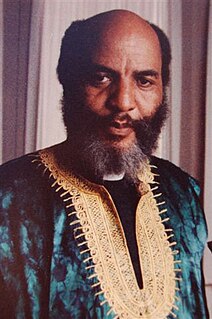 W
WJames Luther Bevel was a minister and a leader of the Civil Rights Movement in the United States. As the Director of Direct Action and of Nonviolent Education of the Southern Christian Leadership Conference (SCLC), he initiated, strategized, directed, and developed SCLC's three major successes of the era: the 1963 Birmingham Children's Crusade, the 1965 Selma voting rights movement, and the 1966 Chicago open housing movement. He suggested that SCLC call for and join a March on Washington in 1963. Bevel strategized the 1965 Selma to Montgomery marches, which contributed to Congressional passage of the 1965 Voting Rights Act.
 W
WThe Big Six—Martin Luther King Jr., James Farmer, John Lewis, A. Philip Randolph, Roy Wilkins and Whitney Young—were the leaders of six prominent civil rights organizations who were instrumental in the organization of the March on Washington for Jobs and Freedom in 1963, at the height of the Civil Rights Movement in the United States.
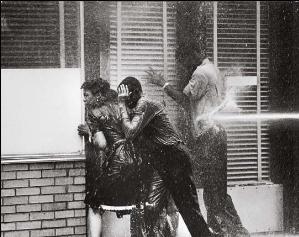 W
WThe Birmingham campaign, also known as the Birmingham movement or Birmingham confrontation, was an American movement organized in early 1963 by the Southern Christian Leadership Conference (SCLC) to bring attention to the integration efforts of African Americans in Birmingham, Alabama.
 W
WTaylor Branch is an American author and historian best known for his trilogy of books chronicling the life of Martin Luther King Jr. and much of the history of the American Civil Rights Movement. The third and final volume of the 2,912-page trilogy—collectively called America in the King Years—was released in January 2006, and a selected summary of the trilogy, The King Years: Historic Moments in the Civil Rights Movement, was released in 2013.
 W
WEbenezer Baptist Church is a Baptist church located in Atlanta, Georgia, United States, affiliated with the Progressive National Baptist Convention and American Baptist Churches USA. It was the church where Dr. Martin Luther King, Jr. was co-pastor from 1960 until his assassination in 1968, the location of the funerals of both Dr. King and congressman John Lewis, and the church for which United States Senator Raphael Warnock has been pastor since 2005. It is located in the historic area now designated as the Martin Luther King Jr. National Historical Park.
 W
WEstate of Martin Luther King, Jr., Inc. v. CBS, Inc. is a United States court case that involved a longstanding dispute about the public domain copyright status of the text of Martin Luther King Jr.'s famous speech, known by the key phrase "I Have a Dream", originally delivered at the August 1963 March on Washington for Jobs and Freedom. The court ruled that King's delivery of the speech was a "performance", rather than a "general publication", of its text, and therefore overruled a lower court judgment granting summary judgment in CBS's favor. The two sides ultimately settled the matter out of court instead of appealing to a higher court.
 W
WThe FBI–King suicide letter or blackmail package was an anonymous 1964 letter and package by the Federal Bureau of Investigation (FBI) meant to blackmail Martin Luther King Jr. The suicide letter was part of the FBI's COINTELPRO operation against King.
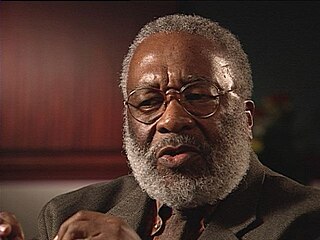 W
WVincent Gordon Harding (1931–2014) was an African-American historian and a scholar of various topics with a focus on American religion and society. A social activist, he was perhaps best known for his work with and writings about Martin Luther King Jr., whom Harding knew personally. Besides having authored numerous books such as There Is A River, Hope and History, and Martin Luther King: The Inconvenient Hero, he served as co-chairperson of the social unity group Veterans of Hope Project and as Professor of Religion and Social Transformation at Iliff School of Theology in Denver, Colorado. When Harding died on May 19, 2014, his daughter, Rachel Elizabeth Harding, publicly eulogized him on the Veterans of Hope Project website.
 W
W"Heed Their Rising Voices" is a 1960 newspaper advertisement published in the New York Times. It was published on March 29, 1960 and paid for by the "Committee to Defend Martin Luther King and the Struggle for Freedom in the South". The purpose of the advertisement was to attract attention and steer support towards Martin Luther King Jr. A recent felony charge of perjury was leveled against King and could have resulted in a lengthy imprisonment. The headline of the advertisement was drawn from a phrase used in the New York Times editorial, "Amendment XV", published on March 19, 1960. The advertisement became the source of a libel suit in the United States Supreme Court case New York Times Co. v. Sullivan (1964).
 W
WThe King assassination riots, also known as the Holy Week Uprising, was a wave of civil disturbance which swept the United States following the assassination of Martin Luther King Jr. on April 4, 1968. Many believe it to be the greatest wave of social unrest the United States had experienced since the Civil War. Some of the biggest riots took place in Washington, D.C., Baltimore, Chicago, and Kansas City.
 W
WKing v. Trustees of Boston Univ. 420 Mass. 52 was a contracts case tried in the Massachusetts Supreme Judicial Court in 1995, involving gratuitous transfer and consideration. Coretta Scott King the administratrix of the estate of Martin Luther King, Jr. submitted a motion for judgment to the trial court to recover papers that Martin Luther King, Jr. submitted to Boston University, claiming that the papers were the property of the estate. The trial court ruled in favor of the defendant, the papers were deposited as a charitable contribution to Boston University. The plaintiff appealed, the trial courts decision was affirmed.
 W
WThe March on Washington for Jobs and Freedom, also known as simply the March on Washington or The Great March on Washington, was held in Washington, D.C., on Wednesday, August 28, 1963. The purpose of the march was to advocate for the civil and economic rights of African Americans. At the march, final speaker Dr. Martin Luther King Jr., standing in front of the Lincoln Memorial, delivered his historic "I Have a Dream" speech in which he called for an end to racism.
 W
WMarquette Park, the largest park on the southwest side of Chicago, Illinois, at 323 acres (1.31 km2), is located at 41.768°N 87.703°W in the city's Chicago Lawn neighborhood. The park is named for Father Jacques Marquette (1637–1675).
 W
WFrom the mid 1960s until the late 1980s, Chicago's Marquette Park was the scene of many racially charged rallies that erupted in violence. The rallies often spilled into the residential areas surrounding the park.
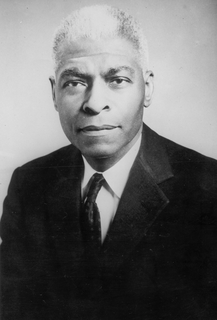 W
WBenjamin Elijah Mays was an American Baptist minister and American rights leader who is credited with laying the intellectual foundations of the American civil rights movement. Mays taught and mentored many influential activists, including Martin Luther King Jr, Julian Bond, Maynard Jackson, and Donn Clendenon, among others. His rhetoric and intellectual pursuits focused on Black self-determination. Mays' commitment to social justice through nonviolence and civil resistance were cultivated from his youth through the lessons imbibed from his parents and eldest sister. The peak of his public influence coincided with his nearly three-decade tenure as the sixth president of Morehouse College, a historically black institution of higher learning, in Atlanta, Georgia.
 W
WThe Memphis sanitation strike began on February 12, 1968, in response to the deaths of sanitation workers Echol Cole and Robert Walker. The deaths served as a breaking point for more than 1,300 African American men from the Memphis Department of Public Works as they demanded higher wages, time and a half overtime, dues check-off, safety measures, and pay for the rainy days when they were told to go home. The Memphis sanitation strike was led by T.O. Jones and had the support of Jerry Wurf, president of the American Federation of State, County, and Municipal Employees (AFSCME) and the local branch of the National Association for the Advancement of Colored People (NAACP). The AFSCME was chartered in 1964 by the state, the city of Memphis refused to recognize it. Resulted in the second sanitation Worker Strike in 1968 which began because of several incidents that led the employees to strike. Mayor Henry Loeb refused to recognize the strike and rejected the City Council vote, insisting that only he possessed the power to recognize the union. The Memphis sanitation strike prompted Martin Luther King Jr.'s presence, where he famously gave the “I’ve Been to the Mountaintop” speech a day before his assassination.
 W
WThe Montgomery bus boycott was a political and a social protest campaign against the policy of racial segregation on the public transit system of Montgomery, Alabama. It was a foundational event in the civil rights movement in the United States. The campaign lasted from December 5, 1955—the Monday after Rosa Parks, an African-American woman, was arrested for her refusal to surrender her seat to a white person—to December 20, 1956, when the federal ruling Browder v. Gayle took effect, and led to a United States Supreme Court decision that declared the Alabama and Montgomery laws that segregated buses were unconstitutional.
 W
WThe Nashville sit-ins, which lasted from February 13 to May 10, 1960, were part of a nonviolent direct action campaign to end racial segregation at lunch counters in downtown Nashville, Tennessee. The sit-in campaign, coordinated by the Nashville Student Movement and the Nashville Christian Leadership Council, was notable for its early success and its emphasis on disciplined nonviolence. It was part of a broader sit-in movement that spread across the southern United States in the wake of the Greensboro sit-ins in North Carolina.
 W
WOpen Hearing is a 1957–58 American news-related talk show, with John H. Secondari as the moderator. It was a 60-minute program that aired Sunday evenings from 5:00–6:00 p.m. on the ABC television network.
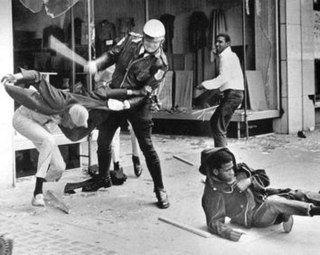 W
WLarry Payne was a sixteen-year old African American teenager who was killed following a march in support of the Memphis sanitation strike on Thursday, March 28, 1968, in Memphis, Tennessee. He was the only fatality on that day although the New Pittsburgh Courier reported 60 injured and 276 arrested.
 W
WThe Poor People's Campaign, or Poor People's March on Washington, was a 1968 effort to gain economic justice for poor people in the United States. It was organized by Martin Luther King Jr. and the Southern Christian Leadership Conference (SCLC), and carried out under the leadership of Ralph Abernathy in the wake of King's assassination in April 1968.
 W
WBayard Rustin was an African American leader in social movements for civil rights, socialism, nonviolence, and gay rights.
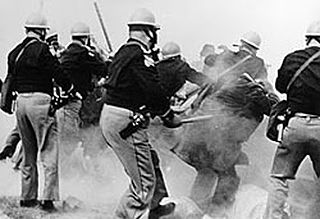 W
WThe Selma to Montgomery marches were three protest marches, held in 1965, along the 54-mile (87 km) highway from Selma, Alabama, to the state capital of Montgomery. The marches were organized by nonviolent activists to demonstrate the desire of African-American citizens to exercise their constitutional right to vote, in defiance of segregationist repression; they were part of a broader voting rights movement underway in Selma and throughout the American South. By highlighting racial injustice, they contributed to passage that year of the Voting Rights Act, a landmark federal achievement of the civil rights movement.
 W
WThe sermons and speeches of Martin Luther King Jr., comprise an extensive catalog of American writing and oratory – some of which are internationally well-known, while others remain unheralded and await rediscovery.
 W
WThe Southern Christian Leadership Conference (SCLC) is an African-American civil rights organization. SCLC is closely associated with its first president, Martin Luther King Jr., who had a large role in the American civil rights movement.
 W
WThe phrase "violence begets violence" means that violent behaviour promotes other violent behaviour, in return. The phrase has been used since the early 19th century.
 W
WHarry Wachtel was a New York lawyer and businessman who worked closely with Martin Luther King Jr., Clarence Benjamin Jones, and others within the Civil Rights Movement. Wachtel founded the Research Committee, an influential group within King's inner circle that advised King on political and social issues, and helped provide King and the movement with legal and financial connections.
 W
W